In today’s development landscape, having the right tools is just as important as having the right skills. One of the most critical yet overlooked tools is your server. Whether you’re a solo developer building small projects, part of a growing startup, or working on complex enterprise systems, your choice of server will directly affect your development workflow, speed, and success.In this article, we’ll guide you through what to look for in a server for developers, break down the options, and help you match your server setup to your specific type of development.
What Developers Use Servers For
Servers are essential to the development process beyond just deployment. Developers use servers in various stages of their workflow:
- Web hosting and testing: Hosting websites or web apps in a controlled environment lets you test real-world performance and user interaction.
- Backend services: Whether it’s a REST API, GraphQL server, or microservice architecture, backend logic needs a reliable, always-on host.
- Version control systems: Hosting private Git repositories or tools like Gitea or GitLab lets you manage your code securely and collaboratively.
- Continuous Integration/Deployment (CI/CD): Automating your builds and deployments ensures fast feedback, fewer bugs, and a smoother release pipeline.
- Remote desktop or dev machine: A VPS or dedicated server can serve as your always-accessible dev environment, especially when you need to switch devices.
- Data processing, machine learning, or simulations: Servers with GPU support and large memory help train models or run data-intensive operations.
A developer without a proper server environment is like a carpenter without a workbench—your tools can’t reach their full potential.
Types of Servers for Developers
Not all servers are created equal. Depending on your needs, project size, and budget, you’ll need to decide which type of server is best suited to your workflow.
- Local Development Server
Great for quick testing and development on your own machine. However, it lacks the real-world conditions of hosting, bandwidth limits, or team collaboration. It’s fast, flexible, but ultimately limited. - Shared Hosting
Cheap and easy to use but comes with heavy limitations. You won’t have root access, and your environment is shared with other users, making it risky and unsuitable for anything beyond basic static websites or PHP apps. - Virtual Private Server (VPS)
A VPS offers dedicated resources, root access, and full control while still being affordable. You can install the OS and software stack of your choice. Ideal for most developers who need flexibility, security, and a reliable test/staging/live setup. - Dedicated Server
A physical server entirely allocated to you, offering maximum performance and isolation. Ideal for game servers, large-scale applications, and complex backend systems with high resource demands. - Cloud-Based Environments
Providers like AWS, Azure, and Google Cloud offer flexible, scalable environments. You pay for what you use and can scale on demand. These are ideal for machine learning, multi-user teams, and large-scale automated infrastructures.
For many modern teams, a scalable cloud instance offers an ideal server for developers who need flexibility and high availability. Each type comes with its pros and cons, but for most developers, VPS and cloud instances offer the best mix of power, flexibility, and price.
Key Factors to Consider When Choosing a Server

It’s not just about specs. Choosing the right server involves understanding your workflow, stack, and long-term needs.
- Operating System: Linux (e.g., Ubuntu, Debian, CentOS) is preferred by most developers for its flexibility, package availability, and community support. Windows Server is essential for .NET, MSSQL, or certain enterprise applications.
- Root Access: This lets you install any software, configure the server to your needs, and manage security directly. If you don’t have root, you’re stuck with whatever the host allows.
- Performance: Performance needs vary: a simple web app may run on 1GB RAM and 1 vCPU, while APIs or backends need 2–4 GB RAM and SSD storage. Game or AI projects often require multiple cores and possibly GPU access.
- Scalability: As your project grows, so should your server. Look for providers who make it easy to scale resources without migrating everything manually.
- Stack Support: Ensure your server supports your languages, frameworks, and tools, such as Python, Node.js, PHP, Ruby, Docker, NGINX, Apache, Git, PostgreSQL, MySQL, MongoDB
- Security: Look for built-in DDoS protection, SSH key access, regular backups, firewalls, and patch management.
- Backup & Recovery: An automated backup system could save you hours—or even your entire project—in the event of an error or attack. This is especially crucial when your server for developers is hosting active codebases or live test environments.
- Price vs. Features: Don’t just look at cost. Make sure the value matches what you’re getting: some “cheap” plans come with hidden limitations or unreliable uptime.
Recommended Server Setups for Different Types of Development

Every development field comes with its own set of demands. Whether it’s performance, compatibility, or flexibility, your server should match the nature of your work. Here’s how different types of developers can choose the most fitting setup:
Web Development
Web developers often need a versatile environment that supports popular stacks like LAMP (Linux, Apache, MySQL, PHP), MEAN (MongoDB, Express.js, Angular, Node.js), or Django for Python, all of which run well on a properly configured server for web development. A Linux-based VPS offers the ideal balance of cost, flexibility, and control. Pair it with NGINX or Apache, enable Git integration, and automate deployments via CI/CD tools for a streamlined workflow. Staging environments are essential for testing before pushing to production, especially when working on a multi-phase server for web development setup.
Game Development
Developers working on multiplayer or real-time games require low latency, reliable uptime, and substantial CPU performance, making a dedicated or high-performance VPS the ideal server for game development. A dedicated server or a high-performance VPS is recommended, especially when hosting match servers, world state synchronization, or custom game logic. Choose a provider that offers strong network stability and the option to fine-tune kernel or firewall settings. Tools like Photon, Mirror, or custom engines can run more smoothly with uninterrupted access to system resources, especially when hosted on a properly configured server for game development.
AI & Machine Learning
AI developers need raw power—high RAM, multi-core CPUs, and GPU access for training large datasets and models, which makes choosing the right server for AI development essential. A cloud server with GPU support is ideal for running TensorFlow, PyTorch, and other ML libraries. You’ll also want a setup that supports Jupyter notebooks and Python environments like Anaconda. Look for scalable storage, as datasets and model checkpoints can take up considerable space. Containerization is also useful here to manage dependencies and streamline updates on a scalable and consistent server for AI development.
Mobile App Development (iOS and Cross-Platform)
For mobile developers building apps in Flutter, React Native, or iOS environments, a VPS can serve as a robust backend for user data, authentication, and APIs. Hosting your own REST or GraphQL services on a Linux server gives you more control than relying on third-party services. Integrate build automation tools, databases, and cloud messaging to support push notifications, in-app updates, and analytics pipelines.
Android App Development
Android developers often need a backend to handle user registration, real-time syncing, cloud messaging (via Firebase or custom services), and content delivery—making a reliable server for Android app development a key part of the stack. A VPS with full root access lets you install Java environments, Node.js servers, or Kotlin-based microservices. You can also run emulators or testing tools remotely if needed. Look for easy integration with Firebase CLI, API versioning tools, and scalable storage if you’re handling images or user uploads on a purpose-built server for Android app development.
DevOps & Automation
If your focus is infrastructure, scripting, and deployment pipelines, your server should be built around repeatability and automation. A Linux VPS with Docker, Kubernetes, GitLab Runner, and support for tools like Ansible or Terraform is a strong foundation. You can create build servers, test runners, and container registries to streamline software delivery for your team. For full DevOps workflows, consider servers with strong network I/O and the ability to clone or snapshot environments quickly.
IoT and Embedded Systems
IoT developers require lightweight, responsive servers for cross-compiling code, managing devices, and analyzing data streams. A small VPS can act as a central point for device firmware updates, logging, and remote control. Support for SSH, MQTT brokers, and real-time dashboards (e.g., Grafana or Node-RED) is key. The ability to run scripts and manage secure device communications is often more valuable than high specs in this case.
Best Server Providers for Developers
Choosing the right provider can save you hours of frustration and give you the confidence to deploy and scale without headaches. Below are some of the most developer-friendly server providers on the market:
DigitalOcean
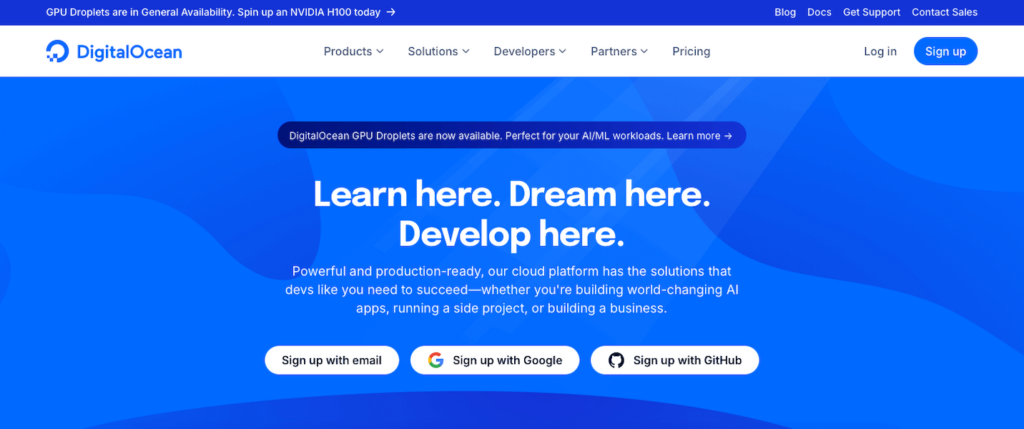
Known for its simplicity and developer-focused interface, DigitalOcean makes it easy to deploy cloud VPS instances within seconds. With a massive library of tutorials, one-click app deployments, and predictable pricing, it’s a favorite for web developers, startups, and solo projects.
Linode
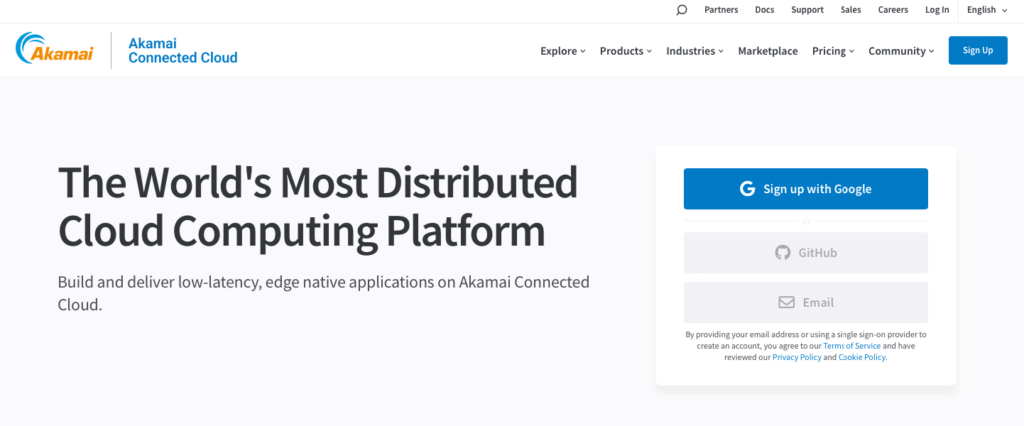
Linode offers a solid mix of performance and affordability. It’s well-suited for developers who prefer working directly with the command line and managing their environments manually. With robust documentation and global data centers, it provides reliable infrastructure for both hobby and production work.
Vultr
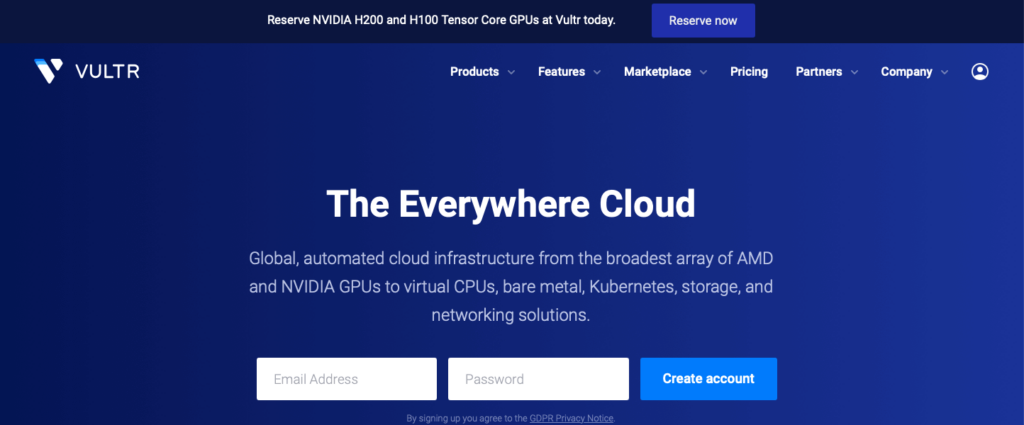
Vultr stands out for its wide global footprint and flexible billing options, including hourly and monthly plans. It supports both standard and high-performance VPS, giving developers the ability to scale up based on workload. Its custom ISO support is particularly handy for setting up niche dev environments.
AWS
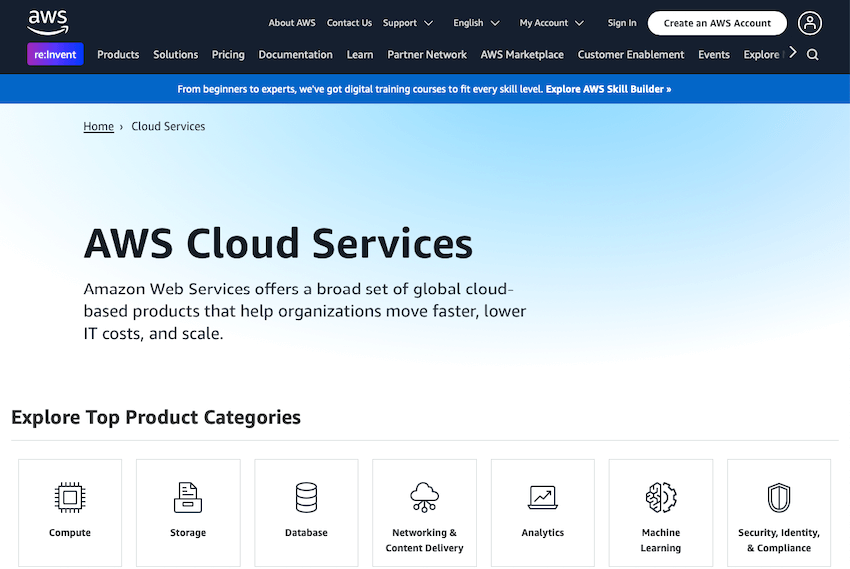
A powerhouse in the cloud space, AWS is extremely flexible but comes with a steep learning curve. It’s best for teams who need advanced scalability, high availability, and integrated tools like Lambda, RDS, and CloudFormation. It’s ideal for enterprise-level applications and infrastructure-heavy workflows.
Google Cloud Platform

GCP is widely used for AI/ML development thanks to its deep integration with TensorFlow, Kubernetes, and BigQuery. It provides top-tier networking, high uptime, and generous free tiers, making it appealing to developers running data-heavy or cloud-native applications.
VPS.us (Flexible Choice)
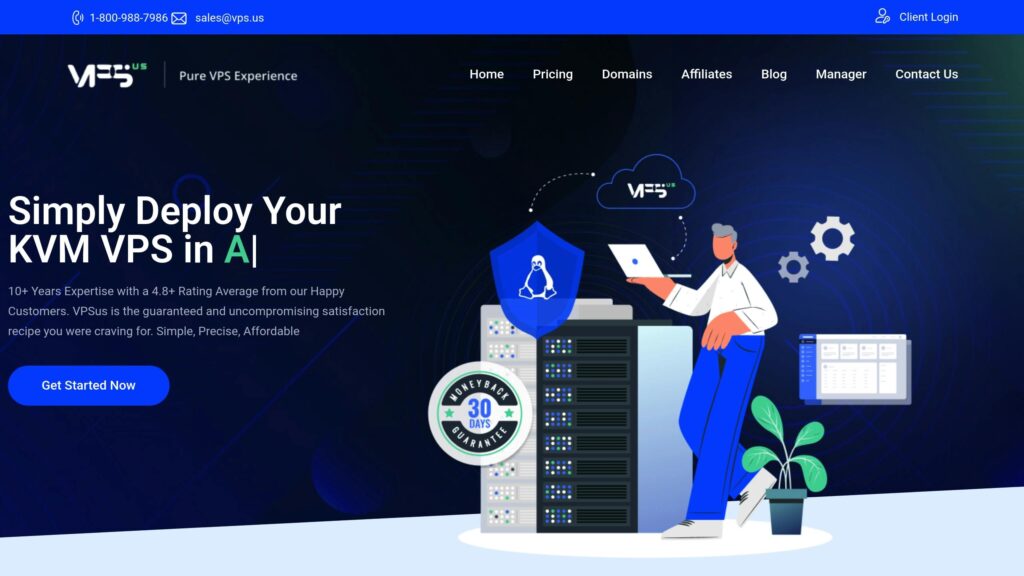
VPS.us focuses on delivering powerful, no-nonsense KVM VPS hosting with full root access and excellent uptime. Our infrastructure is optimized for developers looking for performance, simplicity, and reliability without the complexity of large cloud platforms. Whether you’re deploying an API, setting up a dev/staging environment, or running a lightweight game server, we’ve got a plan that fits your stack and your budget.
Whether you prefer a minimalist setup or need advanced integrations, there’s a server for developers that fits your workflow. No matter your tech stack or development goals, choosing the right provider lays the groundwork for smoother builds, faster deployments, and fewer surprises down the line.
Conclusion
Your code is only as good as the environment it runs in. Picking the right server is about balancing control, flexibility, performance, and price. Whether you’re building websites, deploying APIs, training AI, or hosting game servers, there’s a setup tailored for your needs. By understanding your workflow and matching it with the right server type, you’ll save time, improve stability, and scale effortlessly.
Take Control with Developer-Ready VPS Hosting
At VPS.us, we’ve designed our KVM VPS hosting with developers in mind. You get full root access, blazing-fast SSD storage, and scalable resources for every stage of development. Whether you’re running APIs, building websites, or managing containers, we’ve got you covered.
Try our KVM2-US plan—it includes 2 vCPU cores, 2 GB RAM, and 25 GB of SSD storage—ideal for lightweight to mid-sized development projects. It’s the perfect balance of performance and value for serious coders.
Launch your next project on solid infrastructure—choose VPS.us and build with confidence.



